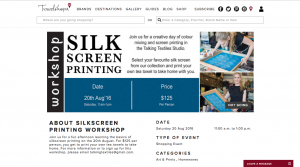The industrial revolution has always been a rather vague term for me as I never knew exactly what it meant, other than a period of progress, but after the last lesson (and a little bit of research on my own) I’ve come to a much better understanding of it. The industrial revolution was arguably the mother of all revolutions, for without it our lives would be vastly different.
To paraphrase the words of youtube smartguy John Green: every waking and sleeping second of your life is due to industrial revolution.
One thing that really surprised me was how the industrial revolution so drastically changed the way people live, for in the past people’s day began when the sun came up and ended before it got too dark to see anymore. Workers essentially followed the sun. After the invention of machines people from the country flocked to the city to work in factories, and their lives were scheduled around the clocktower.
Before the industrial revolution changes in technology were slow, and inventions like the spinning machine sought to make manufacturing processes more efficient, but like everything else it had its fair share of side effects. Working conditions in factories were terrible, wages were extremely low and people lived in slums. Marx spoke out against what he termed as ‘commodity fetishism’, where relationships between people were defined by money or commodities, and William Morris sought to put to an end the stream of ‘vulgar’ objects coming out of factories.
Technology brought along progress, but also a renewed appreciation for the past.
I feel that this is also reflected in our current society, where people are starting to take up interest in technologies of the past such as silkscreen printing and manual letterpress workshops.
I’m not entirely sure why this is so but I guess William Morris was right in saying that if people/designers are too far-removed from the process of creation (by becoming too digitalised and mass-produced) then works/products will begin to look cheap and devoid of any personal touch. I’ve read a couple of books about famous graphic designers and one piece of advice they all seem to give is to keep sketching, and it’s probably because drawing with the hand resembles the creative process more than moving things around a computer screen. The same could be said about the people who take up the activities mentioned above, where they derive more satisfaction in manually setting ink to paper than simply printing copies from a laser printer.
In conclusion, I don’t know what improvements in technology will bring about in the future, but I do know that along with the increased efficiency there will also be more appreciation for how things were done previously. Both of these extremes have their own setbacks. All I can strive for as a designer, as with almost everything else in life, is to use everything in moderation and hopefully produce beautiful things that William Morris would want to own.

